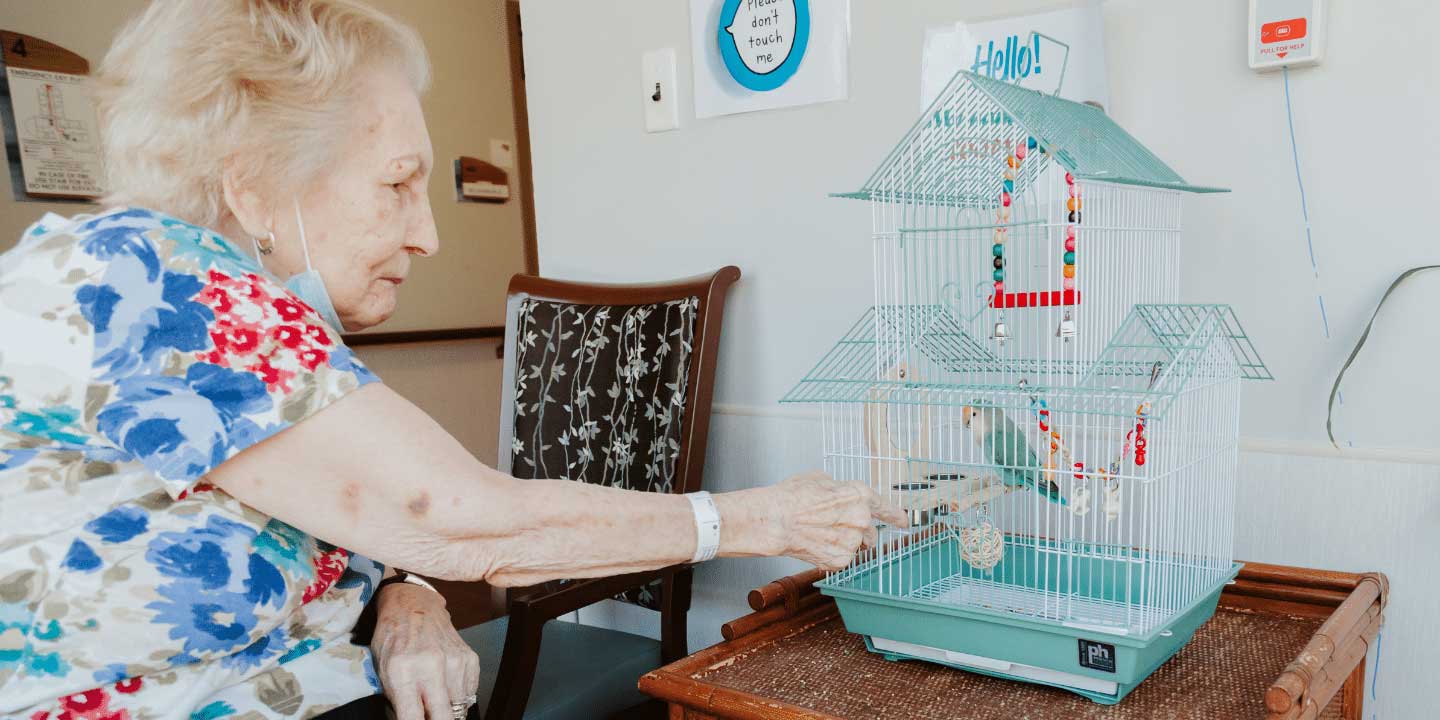Having access to pet interaction can offer a variety of benefits for short term rehabilitation patients, helping to bring joy and healing during a challenging time. During this period of transitional care, patients are often missing their own family pets while they anxiously await their return home.
Understanding Pet Interaction
Animals such as dogs, cats, birds, rabbits, or guinea pigs are commonly used in healthcare settings to provide patients with opportunities for pet interaction. These animals are carefully selected for their ability to interact positively with humans.
Dogs are commonly utilized in care settings due to their friendly and loyal nature, unconditional love, and non-judgmental presence. Cats possess a calming presence and are also well-suited for pet interaction in skilled nursing facilities. Smaller pets like birds, rabbits, or guinea pigs can be used for patients who prefer a gentler interaction or have allergies.
Pet interaction is a remarkable tool for promoting emotional well-being, facilitating social interaction, and enhancing physical health during a rehab stay at the Methodist Home.
Emotional Benefits of Pet Interaction
The emotional benefits of pet interaction can have a transformative impact on their well-being. Interacting with animals has been shown to reduce feelings of loneliness, depression, and anxiety.
The presence of animals often has a calming effect on patients, promoting relaxation and reducing stress levels. Petting an animal releases endorphins, which are natural mood boosters that can help alleviate symptoms of sadness or emotional distress, enhancing overall emotional stability.
Pet interactions also provide patients with a sense of purpose and responsibility. Taking care of an animal, even for a short time, can instill a sense of nurturing and importance. Patients may feel a renewed sense of meaning and connection when they have the opportunity to care for and interact with an animal.
Social Benefits of Pet Interaction
Patients may face social challenges due to various factors such as physical limitations, anxiety, or a sense of isolation. Pets can help overcome these barriers by creating opportunities for social engagement. Interacting with animals often sparks conversations and encourages seniors to share stories and experiences, promoting a sense of community and belonging. Additionally, engaging with animals can reduce feelings of self-consciousness or social anxiety, empowering patients to participate more actively in social interactions.
Physical Benefits of Pet Interaction
Interacting with animals can also have a positive impact on the physical health of patients, promoting mobility, motor skills, and overall well-being.
The presence of animals can also stimulate the senses and encourage sensory integration. For example, stroking a dog’s fur or listening to a cat’s purr can provide tactile and auditory stimulation. These sensory experiences can enhance coordination and sensory perception, particularly for individuals who may be recovering from neurological conditions or injuries.
Interacting with an animal has also been shown to lower blood pressure and heart rate, reducing the risk of cardiovascular complications. Engaging with animals can promote relaxation, leading to a decrease in stress levels.
Pets at the Methodist Home
The Methodist Home is proud to be the home of two peach-faced lovebirds. Thanks to generous donors, Loopy and Maria enjoy each other’s company in the Great Room while bringing smiles to the faces of everyone throughout each day.
We also allow dogs or cats to visit with their humans and proof of vaccination. While we love pets and the joy they bring to our patients during their recovery journey, we also have to make sure everyone stays healthy by following proper precautions.
Learn More About Us
At The Methodist Home, we are dedicated to providing exceptional care and support to our residents as they recover from illness, injury, and surgery. This includes our pet birds and our policy that allows vaccinated dogs or cats to visit.
To learn more about a short term rehab stay at the Methodist Home, contact us today.

